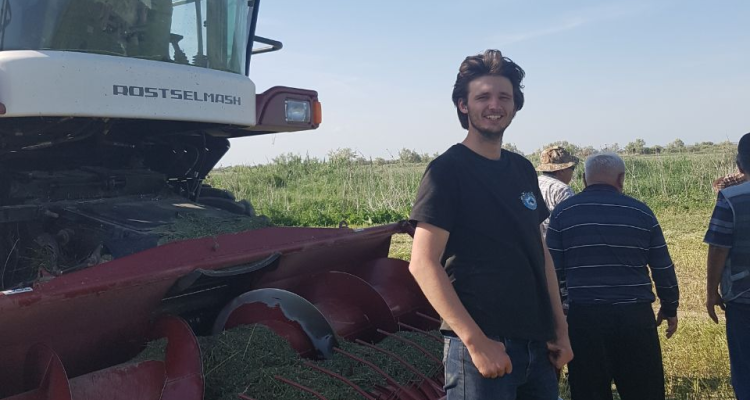
Alumnus testimonial
Bram - international sales manager at the Paul Mueller Company
Growing up on a dairy farm in the Netherlands, Bram van ‘t Klooster was primed with agricultural knowledge before becoming an MDR student. He finished a bachelor’s in Animal Husbandry and always knew that he wanted to work abroad.
When you do the MDR study, you dive much deeper below the surface of understanding human behaviour than you ever could while working in the field.
How did MDR helped you in your work?
Before starting the Master Development and Rural Innovation, he began his career as a farm manager on dairy farms in Russia and Africa, which also allowed him to establish early connections with his later employer, Agriterra. MDR then allowed Bram to dive deeper into the sociological aspects of the topics that he encountered already in his work. “When you do the MDR study, you dive much deeper below the surface of understanding human behaviour than you ever could while working in the field. (…) My knowledge on culture and people is much better now, and my work is much more connected to getting back to the people. I now ask more often ‘what do the people really need?’ instead of assuming.”
What kind of work did you do after you graduate?
After finishing his MDR internship for a company setting up trade of dairy equipment between the Netherlands and Kenya, Bram started his first job as a business advisor for East Africa at Agriterra. He quickly realised however that, while he enjoyed the work at the NGO, he was missing the commercial part in it. He started working as an international sales manager for Southern Europe, Africa and the Middle East at Paul Mueller Company. The company is manufacturing and selling milk coolers to African businesses to stimulate market development. For him, this is in line with his career goals: get involved with local people and support the creation of long-term business opportunities.
“What we do now is help local entrepreneurs to develop a business based on advanced quality technology. We are doing more than just providing the technology. What you often see with NGO’s is that they move into a country to set up a dairy development project. Then they throw in some 100 milk coolers, they have a couple of them installed, and after half a year the equipment breaks down, as they cannot be locally maintained, and no lasting change is created. I want to work with local entrepreneurs, that can actually maintain and install these technologies and support them making a living out of their business.”
What is the importance of the MDR program according to your work?
Understanding how people respond to change and how to manage relations is central to the MDR program. Bram knows that what makes sense to a European does not necessarily make sense to an African when starting a farm. “MDR is mostly based on the social aspects of how developing countries function and their infrastructure. In your professional career, you then start to understand how important the background of the people is when implementing change.”